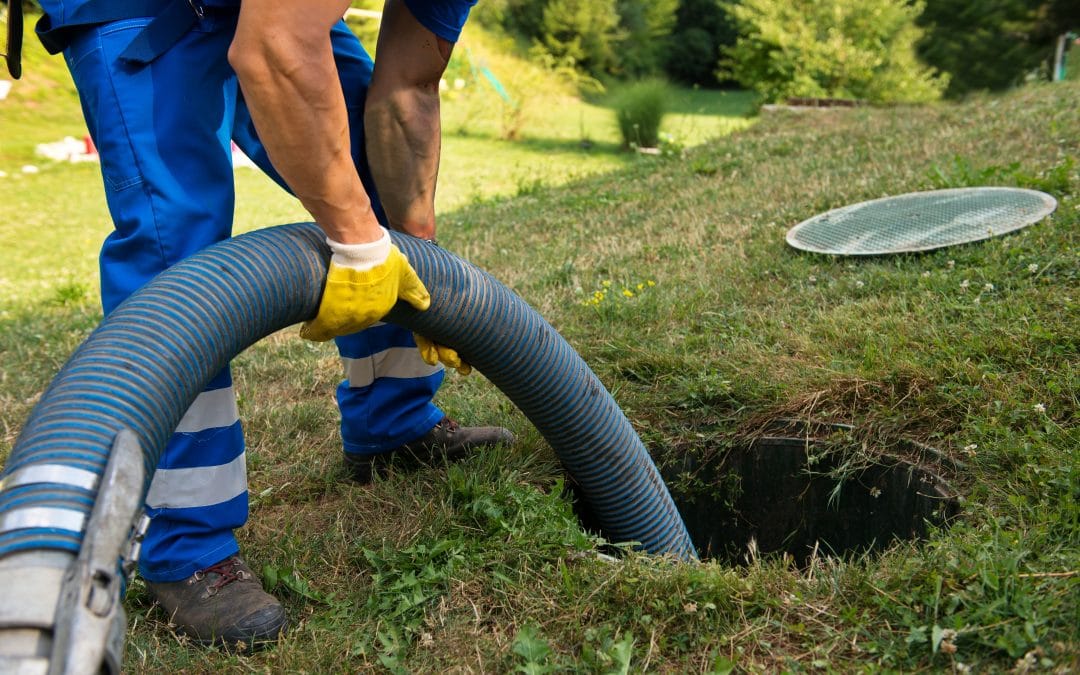If your house has a septic system, there are a few things you need to know to maintain a safe and reliable septic system. This will protect the investment in your home and will provide a septic system that works for years to come.
The downside of ignoring your system and just hoping it continues to work could be disastrous. The replacement cost of septic systems can easily run into thousands of dollars. And a malfunctioning system can contaminate groundwater and prevent you from selling your home.
But as long as your system was properly designed and well maintained, your septic system will provide you and your family with a safe and effective treatment of all your household waste-water.
This article will attempt to explain how septic systems work, and what you can do to extend the life of your septic system for as long as you own your home.
How Do Septic Systems Work?
The typical septic system includes a single pipe from the home from which all your outgoing waste-water is drained, a septic tank to hold the solid material, and a drain field, which allows the remaining waste-water to filter through the soil.
In a healthy septic system, the solids (known as sludge) will sink to the bottom of the septic tank. Oils and grease (known as scum) will float to the top. Then naturally occurring microbes in the soil will essentially digest or filter the remaining contaminants.
You should have your septic system inspected regularly to check for any leaks and also to determine if and when your tank needs to be pumped.
The timing of when your tank needs to be pumped can vary based on many factors such as the size of your tank, the number of people living in your house, the amount of water your family uses, the amount of household chemicals flushed into the system, and the amount of food particles that enter into the septic tank.
Some states now require a backup drain field to be installed with any new septic systems to prevent drain field failures and floods.
Tips To Maintain Your Septic System
There are four main ways to take care of your septic system:
- Regularly inspect your septic system by a qualified contractor
- Pumping the septic tank as determined by a trained professional when necessary
- Use water efficiently. Don’t do all your laundry in one day
- Limit the number of solids, such as food, and chemicals, such as chlorine bleach, from going down your drain. Do not use a garbage disposal.
It’s recommended that you have your septic system inspected at least every 3 years by a professional. If your system includes any electrical or mechanical components, you should have the system inspected each and every year to ensure that everything is working properly.
Inspectors will look for leaks in the septic tank, as well as determine if your system needs to be pumped.
Each system is different, but in general, if there are less than 6 inches of space between the scum layer and the outlet pipe or 12 inches from the top of the sludge to the outlet pipe, you need your tank pumped.
Keeping records of each inspection will help you determine how often your tank needs to be pumped.
In order to reduce the amount of strain on your system, you want to use water as efficiently as possible.
Leaking toilets can waste as much as 200 gallons each day. High-efficiency toilets can cut as much as 30% of your family’s water use. High-efficiency showerheads and faucet aerators are another great way to reduce the amount of water flowing into the system.
Big families should watch when they run dishwasher and clothes washers to make sure they are not putting too much waste-water into the system at once. And run these appliances only when they are full.
You want to limit what goes down your drains. Try to reduce or even completely eliminate the use of your garbage disposal to prevent food solids from entering the system. Use gentler cleaning products and reduce your use of chlorine bleach as much as possible. This can destroy the natural bacteria in your septic system.
No paper products other than toilet paper should be flushed including feminine hygiene products, dental floss, condoms, facial tissues or paper towels.
Preventing Drain Field Failure
Drain fields do not have access to oxygen, which promotes the growth of a black, sludge-like layer called a “biomat.” Over time, the biomat can seal the ground and sidewalls of the drain field, preventing it from absorbing water discharged from the septic tank. This can result in many symptoms of septic system failure, including ponding, foul smell, slow flushing toilets and drains, tank overflows and system back-ups.
You can prevent drain field backups by calling Chemtech. We have a variety of bacteria based products that will help eliminate your biomat.
Our products include Histosol as well as Dry Bacteria Formulations that are not diluted like those big store brands. And these will bring your septic system back to regular working order.
As much as 25% of US homes use septic systems, effectively treating more than 4 billion gallons of waste-water per day. If you follow the guidelines listed above, you should have a fully functioning and effective septic system for the life of your home.
